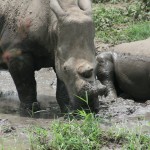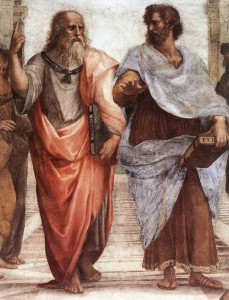Le 9 janvier, j’ai quitté Joburg pour aller en safari au parc national Kruger dans l’est du pays sud-africain.
Après cinq heures de conduite, on est arrivé à l’entrée du parc nommée Phabeni Gate. Là, on a commencé notre voyage lent à travers le parc avec nos jumelles dans une main et nos caméras dans l’autre. Pas un kilomètre de la porte était-on arrêté par un troupeau de vaches qui traversaient la rue! Quelques minutes plus tard, on a repéré des centaines d’impalas, une troupe de minuscules singes, un oiseau à plumes de couleurs vives, appelée un rollier à longs brins, et un seul waterbuck. On était très chanceux!
Le soir, on est arrivé à notre premier camping, à Skukuza. Après le coucher du soleil, on est embarqué dans un camion pour une conduite dans la nuit. Tout était sombre et c’était très difficile d’apercevoir des animaux sans une lampe de poche puissante. Un membre de notre groupe a détecté un mouvement près de la lisière du maquis. C’était une hyène! On la suivit pendant quelques minutes et il nous a apporté à sa famille!
Vers 4 h le lendemain matin, on s’est levé pour aller en randonnée dans le parc. On n’a pas vu grand-chose, mais en retournant de celle-ci, on a aperçu des éléphants et des girafes traversant la rue ! C’était comme aller au zoo … mais sans les enclos!
Dans l’après-midi, on est retourné en route pour notre destination finale, Crocodile Bridge. On a repéré beaucoup plus de mêmes animaux, mais en ajoutant aussi deux rhinocéros blancs et de jolis pique-bœufs à bec rouge.
À chaque jour qui suivait, on quittait notre condo avec le but de repérer un léopard, l’animal le plus difficile d’apercevoir parmi le Big 5 (les animaux africains qui était les plus difficiles de chasser il était une fois, composé léopard, du lion, de l’éléphant, du rhinocéros et du buffle). Cependant, on n’était jamais capable d’en retrouver. On a quand même vu des zèbres, des sangliers, des babouins, des buffles, des gnous, des hippopotames, des lions et un guépard, ce qui est loin d’être pire!
Je suis super chanceux d’avoir eu la chance de rencontrer des animaux sauvages dans un magnifique parc national comme Kruger. J’ai été très impressionné avec la beauté de la nature qu’on peut y trouver. C’était une expérience fantastique!
Adam Vandenbussche ’17, Exchange Student at St Stithians College























